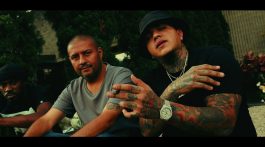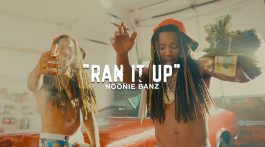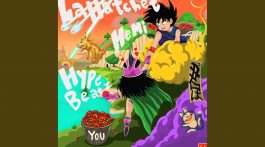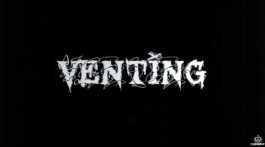Elmer G. “Geronimo” Pratt, the former Minister of Defense for the Black Panther Party, died in Tanzania, Africa Thursday (June 3, 2011). In 1972, the revered leader was unjustly prosecuted and eventually served 27 years in prison for a murder he did not commit. He also served eight years in solitary confinement, conditions that tested his sinew. Pratt became a symbol of clear-cut cases of injustice when it was proven that he was a victim of J. Edgar Hoover’s CointelPro movement that targeted African American leaders.
It should be noted that Pratt is the godfather of Tupac Shakur, one of the most revered artists in the world, especially the Hip-Hop Nation. Geronimo Pratt was 63.
In 2003, Chuck “Jigsaw” Creekmur, AllHipHop.com’s CEO, interviewed Pratt and conversed candidly about Tupac, but also discussed his own rich legacy. Below is the full interview as it ran in September of 2003.

For real, for real: To understand – better yet – to know Tupac Shakur, you must peer beyond hip-hop into history. The family tree that bore Tupac has a lineage of political activists, Black Panthers, and a tightly woven unit all rolled into one prolific individual person that was stolen from the Earth on September 13, 1996. His mother, Afeni, was a Black Panther, one of the Panther 21, and Mutulu, his stepfather, was a staunch activist that remains in jail for crimes he says he didn’t commit. Both Common and Paris have written songs about his Aunt Assata Shakur, who has sought asylum in Cuba. And then, there is Geronimo Pratt (Also referred to as Geronimo Ji Jaga). Geronimo is Pac’s godfather and he too has a story.
Geronimo recalls Tupac has a child bustling with energy, but soon he, like many others in empowering movements of the 60s was taken away from his life’s work, friends and his family. Geronimo spent 27 years in prison for a crime he didn’t commit, the victim of the CIA’s J. Edgar Hoover’s “extermination campaign” against the Panthers and similar groups. Eventually, he was freed after declassified FBI papers proved his innocence and that the government was guilty of illegal persecution. When he got out, his godson, Tupac, was dead. Still, Geronimo’s recollections of Tupac are fond and his experience, like many of those surrounding the rapper, are related. Now, Geronimo lives near Mount Killamanjaro, Africa, where he fights the rampant AIDS epidemic, but he took time to talk to AllHipHop.com about Tupac and himself.
Not surprising, his story is as riveting as his godson’s.
AllHipHop.com: As his godfather, who was the real Tupac?
Geronimo Ji Jaga Pratt: Tupac, to me, was this beautiful little boy that used to climb all over me that was so full of energy. He was not a well known person then. And then, as I saw him grow, I felt that Tupac had this thing in him and he was just so special to me. And so was his sister, Sekyiwa. And the point where he became famous is the point of our departure, because I didn’t hear from him but 2-3 times. Indirectly from him mother or something, but he was busy – I understood. But, it was a Pac I didn’t really know. The only Pac I knew was before he got famous. He was my man, my man.
AllHipHop.com: A few members of the family that I’ve talked to said similar things that they lost touch after the family went to the West Coast.
Geronimo Pratt: I was shocked when I [found out] that Pac was a millionaire. I had no idea that Pac had any money. I heard his name on the radio a couple times. And then I come out here and he’s dead? And his mother is telling me all these things: Pac did this, Pac did that. That just goes to show how alienated I was. I was generally proud when I heard his name – that’s my god boy.
AllHipHop.com: What do you think about the legions of fans that follow him?
Geronimo Pratt: That something. It’s like Elvis not being allowed to die. The won’t let Pac die. And when they ask me, I say, as long as I breathe air Pac is never dead. This is what they want to hear. I always say that anyway. These kids come up and hug me and I say, “Damn, these kids love Pac.” I cannot figure it out other than the chemistry that existed, that he was a genius and he knew how to reach his people. He reached them, they love him and they will not let him die. I love him, because he’s my godson, he’s family and I struggle to understand as I grow.
AllHipHop.com: The Pac that I personally related to the most was the one when he first came out, when he was a lot more political. Do you think a lot of people forget “that” Pac? Seems like people relate to the “Thug Life” side?
Geronimo Pratt: Most of the people that came into the Panthers, that violated, were send by the police. And so they glorified that image of the gangsterism and they shunned all the s**twe were doing in the community-feeding children, medical care and whatnot. That’s the enemy at work. So, with hip-hop, they will glorify the destructive elements and try to subdue the positive side. I think Pac had a good balance.
AllHipHop.com: You were a proven victim of CointelPro [The FBI’s Counter Intelligence Program]. Is it possible that CointelPro is still active today.
Geronimo Pratt: I do believe [that], as I stated when I first got on hip-hop. Hip-hop is indigenous and its powerful and it scares the hell out of these people, right? So, they have to get control and employ CointelPro-like tactics. They work easily. I saw it with Pac. Before he was murdered I mentioned that to him. I believe to this day that they were involved in his death and they were involved in other deaths.
AllHipHop.com : AllHipHop.com definitely likes to have a bit of education for our readers and ourselves. So can you give us some background on you?
Geronimo Pratt: I was born and raised in Louisiana in the swamps. I eventually ended up in New York, Chicago, Philadelphia and, of course, Los Angeles and San Francisco. After coming home from Viet Nam [I started] training Black people how to defend themselves militarily. So, that’s the jist of my background.
AllHipHop.com: So you were the minister of Defense for the Black Panthers?
Geronimo Pratt: I was the actual Minister of Defense. Huey Newton was the nominal Minister of Defense while in prison. He knew nothing about military. It was more of an organizing tool to have Huey’s picture there, because he has been in prison. I was the actual minister even though we never tripped on titles. I was in charge of the ministry of defense.
AllHipHop.com: Did your background make you more feared by the government since you had actual training and technical expertise in the military?
Geronimo Pratt: Yes, and plus my back ground in a society down here, in segregation, we grew up hungry, and fishing and living like soldiers off the land. So, that gave the basis and [my skills] were further honed by the training in the military. Of course that struck a lot of fear in the establishment.
AllHipHop.com: What made you go in the military service in the first place?
Geronimo Pratt: I was part of a class – we had 27 people in my graduating class. Out of the 27, 10 of us ended up going into the United States Army and this was more or less decided by the elders in the community who were getting old. There was a policy that some of us, when we got of age, would be sent to come back and help protect the Black community from racist attacks from the Ku Klux Klan. It had nothing – and listen to me carefully – nothing to do with being patriotic to America. It had everything to do with getting training and returning to protect the community from the Ku Klux Klan. Little did I know, I was going to end up in Viet Nam, blown up, all this stuff, but that’s just the way things happen.
AllHipHop.com: How did you join the Panthers?
Geronimo Pratt: I never joined the Panthers. My function, after Martin Luther King was killed, was to come and defend our community. That was something we had to do. So, when I came out, I worked in the South and then East – New York. I didn’t get to California [main location of the Panthers] ‘til last. So, California has control of the media so when history is written, California gets so much credibility that it doesn’t deserve because they write these things. When I got to California, the name of that group was the Black Panther Party for Self Defense. There was an office in Oakland, a half of an office in San Francisco and an office in Los Angeles. I took that assignment as an challenge. I did the same thing with the New Republic of Africa. I worked with that group, I worked with S.N.I.C. [the 60s group Student Non-Violent Coordinating Committee] with Stokely Carmichael aka Kwame Ture an any number of other organizations. I come from the Deacons of Defense down here. We were assigned to help train them [the Panthers]. Teaching our soldiers to defend themselves. We were very successful.
AllHipHop.com: As far as you personally, being set up, by the government – did you know you were being watched by CointelPro?
Geronimo Pratt: No. Our ministry was the first to become suspicious. We had no idea it was being orchestrated at such a high level of the government. We knew that it was beyond the local borders but we had no idea it was such a widespread operation against us.
AllHipHop.com: When you were accused of killing a school teacher, did you feel that you were going to get convicted?
Geronimo Pratt: Well, I was accused of quite a few cases. The first and most notable was the one Charles Mansion was convicted of. I was picked up on that before him. And then there were quite a few other murders or 187s that they would put on me so I couldn’t make bail. So, this was common practice and when the killing of teacher came up, I thought it was another tactic that they were using to keep me without bail.
AllHipHop.com: And, at that time, Johnny Cochran was your defense lawyer, right?
Geronimo Pratt: I would teach all of my Panthers that if you are charged with a murder or any crime that means taking your life is: The Last thing you wanna do is turn around and say “Hey, I got an attorney to take care of me.” That’s the last thing you want. I was my own attorney. He would come in and assist – Johnny would be one the attorneys that we would get to assist the Panthers. He’s like my brother. We are like family members.
AllHipHop.com: One thing that I felt was really inhumane is, after they convicted you, you spent eight straight years in solitary confinement. What state of mind were you able to maintain to survive that period?
Geronimo Pratt: You talking a long period of time, through a lot of torturous situations. You name it, I went through the gambit. I struggled to survive at every turn. It was the resistance that deep within me. We were born into struggle – we didn’t joint. You born seeing the Klan lynching people and all sorts of racist terror. After Viet Nam and all that stuff, I was tempered to anything they had coming. It wasn’t easy, because California had the worst “hole” (solitary confinement) at the time.
AllHipHop.com: Did you have support from your peers or family?
Geronimo Pratt: Yeah, but you have to understand it wasn’t [a lot of communication] similar to the way they are doing suspected Taliban and sh*t like that. The country was up and arms about anything militant. We were cut off from newspapers, television, radios – that was unheard of. And visits.
AllHipHop.com : How did you manage…were you struggling to get a new trial?
Geronimo Pratt: Well, the initial reaction was to escape. Because, in our minds, we were in a liberation struggle. We were taught, when you are captured by the enemy, you escape. Its hard to do that when you are in a box. By the time I got out of the hole in 1978, I had more privileges and I was able to use their judicial system to affect the release of other prisoners. And also, get myself out. At that point, the FBI’s CointelPro operation was being released to the public. I had documentation that showed that I wasn’t around during the time of the murder – way back then – from the FBI.
AllHipHop.com : In getting out, Johnny Cochran was then instrumental, right?
Geronimo Pratt: Johnny was always there. It was a white boy named Stuart Handlin was my runner. I met him in ’74 when I was on death row. During those years, he was the one right across the bay that would make runs if I needed any outside legal assistance. And he also had Johnny’s personal telephone number. Anytime he called Johnny, Johnny was there. If you go to jail, you go and get yourself. I want to let you know that Johnny was instrumental in a lot of tactic. He is a media personality. Johnny is family.
AllHipHop.com : Can you speak on the $4.5 million settlement you made?
Geronimo Pratt: I never settled. It was a suit I filed after getting the FBI’s documents years ago. They were clearly engaged in criminal activity against us yet we were held as criminal. To me, something is wrong with that, so I filed a suit. The FBI and the Los Angeles [police] admitting their wrongdoing and they gave us $4.5 million. I didn’t settle that. I wanted to go to trial because I got comrades in jail. I got Assata Shakur [Tupac’s aunt] in Cuba. I got Peter O’Neil in Tanzania. We wanted to use [the trial] as a platform as absolve them of any crimes that they were being charged with. So Mutulu – Set’s daddy [Tupac’s sister] – these freedom fighters, can come home. The lawyers didn’t understand that. I’m broke, I need money, right? But, f**k that, I need my comrades out of jail.
AllHipHop.com : Do you have any parting words?
Geronimo Pratt : I’m very happy that the family came out of the dregs that they were in. It was very ugly back in the day. Afeni, she’s pushing forward the legacy, the dream of Pac. And Sekyiwa, Jamala, the family – everybody. People will be educated. I want to remind all Africans, please come to Africa. It’s right across the water. Come look at yourselves. Momma is waiting.











No Comment